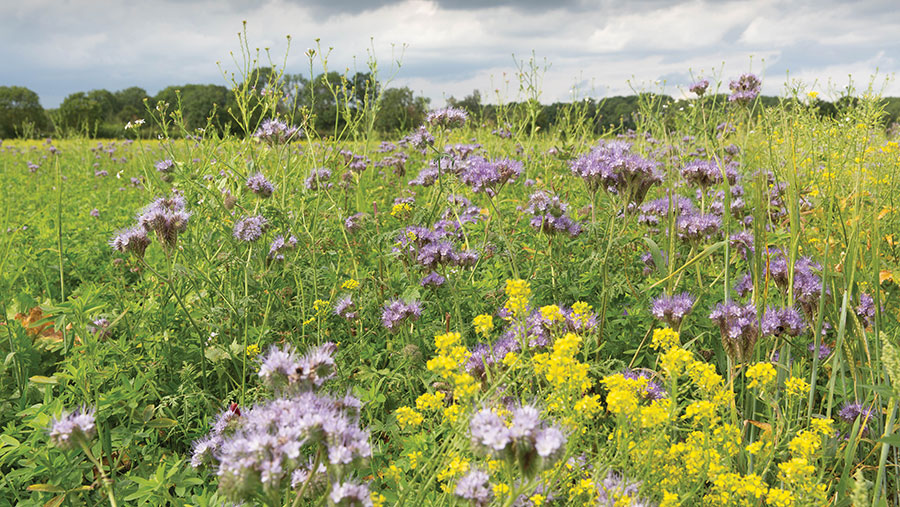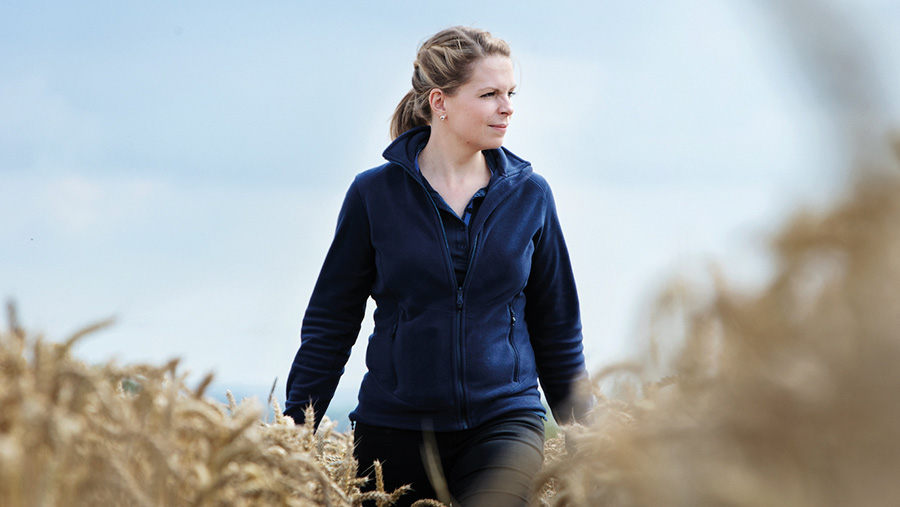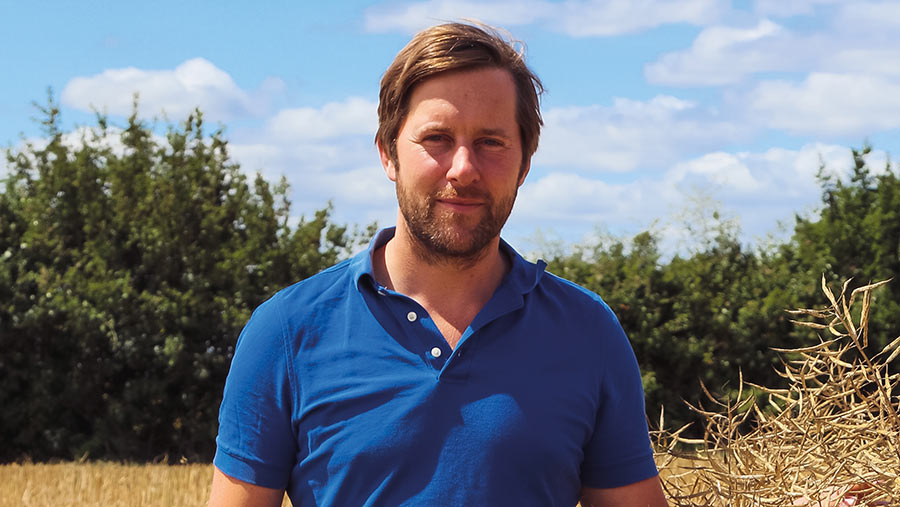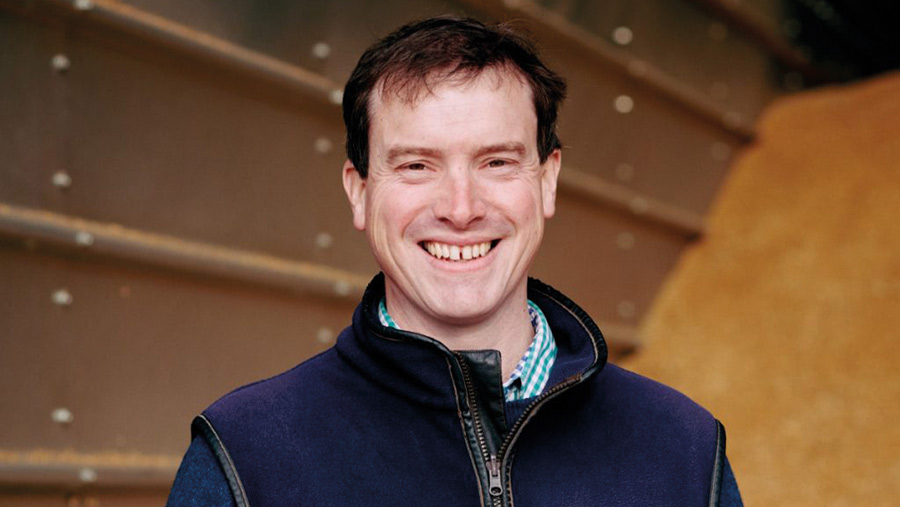3 arable farmers, 3 regenerative agriculture journeys
 © Tim Scrivener
© Tim Scrivener Preparing their businesses for the post-Basic Payment Scheme (BPS) world is the driving aim for three arable farmers at different stages of their regenerative agriculture journey, as they look to get their farms on a more sustainable path and reduce their inputs.
See also: Regenerative farming: The theory and the farmers doing it
Hannah Darby: Cost control

Hannah Darby © BASF
For Hannah Darby, who farms 360ha of combinable crops and sugar beet near Huntingdon, the reasons for starting to change the farming system were rising blackgrass pressures and a desire to prevent soil loss, as well as the need to progress the farming business.
“We also wanted to get off the hamster wheel of spending more on inputs without seeing any reward,” she says.
Since changing, yields have been maintained, and even improved in some cases, crops are rooting better in healthier soils and both fuel and nitrogen fertiliser use have been reduced, she reports.
“Our costs of production are very similar to before, but we are currently restructuring the farm business and relocating everything to be within a five-mile radius,” she reveals. “That will help bring costs down.”
Intercrops are a new feature of the rotation, with a pea and oat combination in the ground, and she is keen to learn more about what they can bring.
“I’m going to push them and see what the results are. The timing of operations can be tricky in this type of system, and the weather conditions have to be right.”
Tom Martin: Phased introduction

Tom Martin © Farmer Time
Tom Martin, who farms near Peterborough, has been running a regenerative system for the past six years, having been min-till for the 20 years before that.
He points out that he adopted each of the five pillars of regenerative agriculture on their own merits – because they made business sense and prepared the farm for the future, rather than being fashionable.
“I’m happier as a result,” he says. “I have made plenty of mistakes, but I didn’t change everything all at once, so I wasn’t overwhelmed.”
Mr Martin – who is behind the Farmer Time initiative – hasn’t experienced the yield dip that is often linked to regenerative agriculture.
Looking after his soils has become a passion, with drainage proving to be an important element.
He describes variable input costs as “falling away” but points out that he had made a deliberate decision to invest in infrastructure due to Brexit and the loss of BPS, so his machinery is newer.
He has also generated his first soil carbon credits as a result of moving to a regenerative system and is actively exploring the potential of other income streams.
Oliver Scott: Starting from scratch

Oliver Scott © Bradford Estates
Oliver Scott, farm manager at Bradford Estates in Shropshire, hasn’t completed his first harvest yet, having taken on the job just 15 months ago with a brief to look at how a regenerative farming system could work.
He took back two conventionally farmed units and is in the early stages of making them more sustainable, predicting that it will take several rotations before he sees results.
He is pleased with how crops are looking this season and is hoping to reintroduce livestock into the rotation, so that greater diversity from crops such as lucerne and herbal leys is achieved.
Previous experience with cover crops will be useful as he makes further changes, predicts Mr Scott, with baseline surveys having been carried out so that he can measure success.
“I’m looking at a number of ways of making the business more sustainable, from adding value before produce leaves the farm to achieving a closed fertility unit, with no need for bagged fertiliser.”
The three farmers were speaking at a briefing at the recent Cereals Event, organised by Strutt & Parker.

